These are the refugees threatening Hungary

- Hungary is the main entry point of the migrants on the Balkan route towards the EU
- Most of the migrants sneak thorugh the Hungarian-Serbian border
- A Hungarian journalist joins a group of Afghani migrants, and crosses the green border
I was crouching at the feet of a Serbian commando, his holster swinging before my eyes, and I was not afraid. No matter that 36 refugees from Afghanistan and Iraq were sitting around me, or that with my black stubble and my cap, a souvenir from Yemen, I also looked like an unauthorized migrant. There was a significant difference between us: while the others handed some crumpled copy of a sheet of paper to the commando gathering us, I gave him a little red notebook inscribed: passport.
This would have been sufficient for me to be able to stand up, express my resentment about the treatment and strut away, take the train across the border, and have a job at home to buy food, books or clothes from my earning, or to pay the rent and live undisturbed as long as I am allowed to. The other people crouching on the ground could not have done the same. That is because they only had a copied piece of paper.
Despite my options I did not walk away, since the purpose of my visit to Subotica was to talk to the migrants.
I knew that those who, after crossing the green border were to appear in Hungary and shortly afterwards in the news, were gathering at the abandoned brickyard beside that town in Vojvodina. I wanted to see with my own eyes what was true of the anti-migrant rhetoric of the Hungarian government.
Is it true that desperate economic migrants are about to take away the jobs of Hungarian people? Are fearless criminals infiltrating the community of meek Hungarians? And how do they get across the border anyway? Do they take the roads offered by traffickers or follow trodden paths?
But I could hardly spend half an hour at the cheerless, wet field behind the brickyard, and I had only glanced at the people assembling in the limp reed when we were raided by the commando. “Stop, stop!” – yelled the people clad in fatigues, swinging their bludgeons, and it was clearly in vain to say “I'm a journalist”. The officers' command of English did not extend beyond “stop, stop,” and I was herded in the line like all the others.
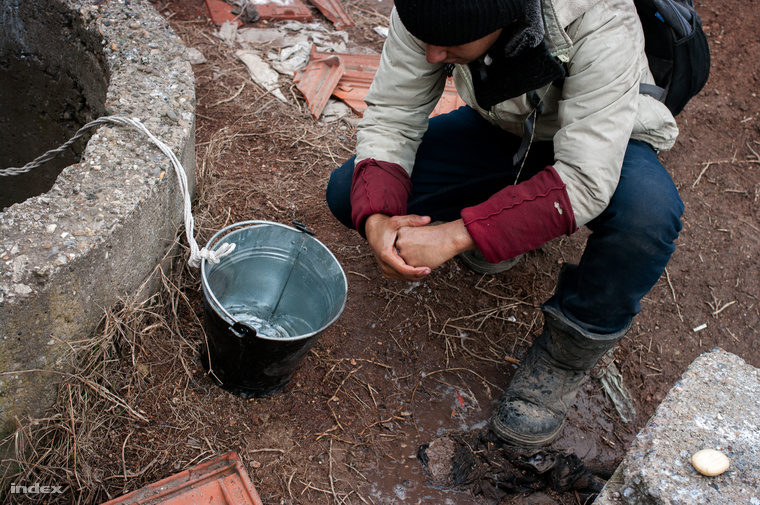
It was more surprising that the refugees were not seeking for refuge. Most of them scrambled to their feet apathetically at the little clearing trodden in the reed. Those who had decided to run turned back when they had heard the yells, and soon we were sitting in a heap encircled by the commando.
As it happened, not only my looks were like that of the migrants, our mood was identical too. In an inexplicable way they were just as calm as I was. They were talking and giggling jovially as though we had come to have a picnic on the damp duff. It did not take long for the two reasons of their ease to turn out. But first we had to wait for the measures to finish. Just like the migrants, I also passed the time with conversation.
The Taliban instead of a future
“I'm from Afghanistan” – said the guy sitting next to me. Finding his fate hopeless, he had set off three moths ago. “I graduated from university as an economist, but you can't do anything with it in Afghanistan.” Another man had served in the military, likewise in Afghanistan. “The Taliban killed my family, only my mother and my sister survived. If I'd stayed, they would also have been in danger, and I would have been executed. So I left.”
A particularly short, grinning fellow had left Afghanistan thanks to the Taliban too. Until one of the Serbian police officers snapped at us I had learned that the boys sitting by me were brothers, they had worked in a garage, providing service for the US military. When the Americans had left, they had found themselves without any future. “My father is a police superintendent. We didn't starve, but there is no future at home. We are six siblings, and two of us have set off to find work in Germany”.
The two reasons for cheerfulness
Despite the depressive lives the atmosphere was mellow; the refugees formed a chattering line when the officer came back with our papers. He read aloud the names and countries, the ones called stepped forward, received their papers and could leave. At the roll-call it turned out that form among the 36 people about 30 were from Afghanistan, the rest from Iraq and Pakistan. This wast the time when the first reason for their ease became clear.
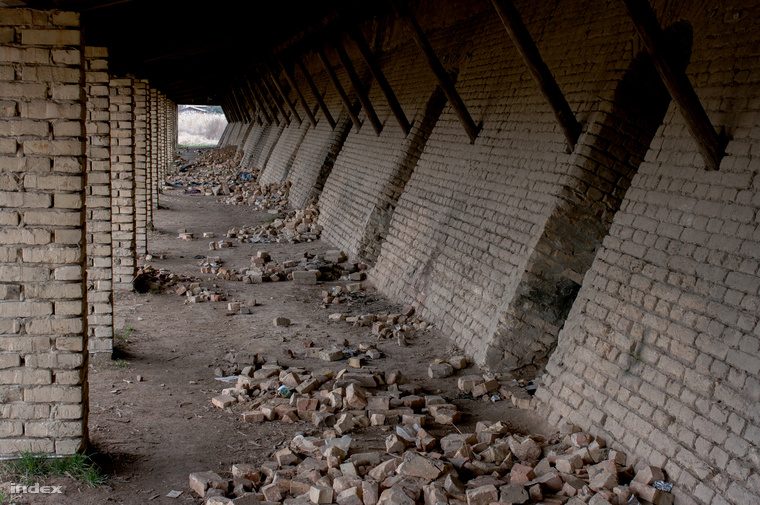
“You may leave” said the officer to the first Afghan person, thrusting the paper into his hands, then called: “The baggage? Take your baggage with you!” The man in the filthy leather jacket and a cap scattered with fragments of leaves was standing around not knowing whether he could leave or not. The officer was ushering him to move, indicating that he could not come back here, he had to leave together with his baggage. Then it dawned on him that these people had no baggage at all.
Their tattered clothes are all they possess. They stand in the world weightless, with no material wealth, 6000 km away from their home. The distance is so long that nothing connects them to their home, neither, apart from the physical connection, to the place where their feet touch the ground. Their passports thrown away, their data vanished, their names and dates of birth no more than rewritable memories.
“There's nothing to do” – said the Serbian officer seeing the airiness of the group when he gave back my passport. “Those who stay in the country illegally receive a warrant to leave Serbia within 10 days. If they get caught again, we impose some fine on them. The whole thing doesn't make much sense. They will try it again until they manage to get through anyway.”
Migration following word of mouth
“The poorest of migrants gather here. Those who has nothing, not even connections to move to the west with the help of traffickers.” This explanation was given by Father Tibor, a beefy man resembling a lorry driver rather than a priest, who has been supplying food and clothes to the refugees appearing in the vicinity for three years.
“Those from Kosovo have better connections, they know the language too. They do not stop here, but take taxis to cross the border.” – he told. Then we got to the far end of the field, the area between the railroad and the garbage dump, where we found everybody who had been sent in the opposite direction a quarter of an hour earlier.
Nail-studded planks were burning with small flames and a large smoke under a sheet of nylon expanded overhead; grinning figures appeared from it. They handed bread and canned fish to each other, and soon loud pops indicated that canned fish is not supposed to be warmed on open fire, let alone without opening them first.
“How do these people know they should come to this field?” – I asked puzzled.
“The news is spread by word of mouth, or the taxi drivers tell them when they drive them from somewhere. This has been the meeting place for years.” – said Father Tibor. “Some arrive exhausted after several weeks of travelling. They can have a rest here for a week or so. But most of them set off again within a couple of days. The majority of these people here I saw yesterday for the first time.” – he indicated with a gesture of his hand, and the people breaking the loafs waved back to him as though they had played football with Tibor on the pitch in Kabul.
I drink water
When the night fell, Tibor went home but I stayed at the bonfire. They put bread into my hand unceremoniously, and a Pakistani boy whose English was surprisingly good asked me questions about where I was going. For a moment it seemed like a good idea to pretend I was a refugee too, but I realized that telling the truth was more useful than some intricate conspiracy.
I resorted to a short journalist's ars poetica to bridge over the resulting incomprehension. “Hungarian people know little about who and why comes to their country. Many of them are afraid of migrants, they think you are dangerous. A journalist's job then is not to believe what politicians say but see the situation with his own eyes.”
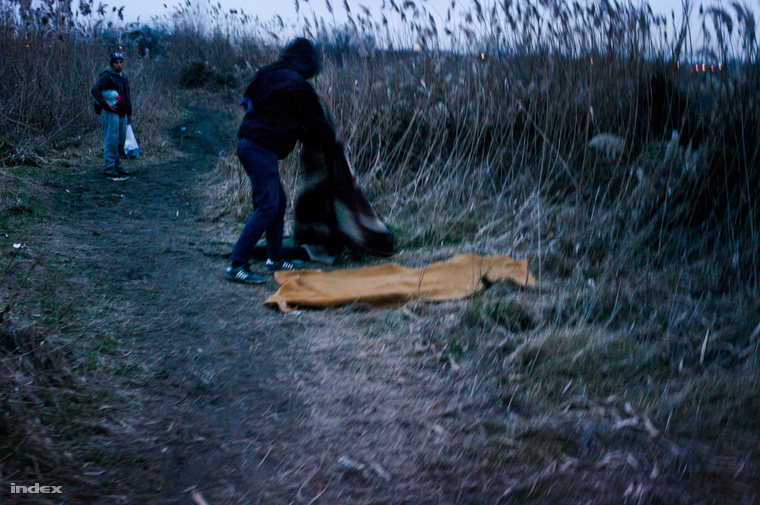
The majority of the group quickly put up with my presence. It was, I suppose, not my dedication that impressed them. At first I thought they accepted me because we were held up together by the commando, or because I had arrived along with Father Tibor, who had brought food. But then it turned out that the reason behind their friendliness was that I treated them properly, like human beings.
“Do you want some water?” – asked the elder Afghan brother. I nodded, but the boy gave the bottle to me in a somewhat uncertain manner. “Are you sure?” – he asked, which I did not understand.
Aren't you afraid to drink after us?
I looked at him with astonishment.
Three days of rambling
The evening followed the pattern of classic bonfire parties, except that we had no wine and nobody fried bacon. After a series of short interviews the usual route of a migrant took shape. Most of them travelled form Afghanistan to Pakistan, to Iran, then Turkey, where they got stranded.
“I spent six months in Istanbul. My money ran out and I had to work at a textile factory, where they did not pay me, so I got stuck.” – told the man who had been a soldier in Afghanistan. “If you are a migrant without documents the Turkish take advantage of you. After a month they said they would pay in the following month. Then again the next month, and it went on like that. After half a year I got three months' wages and then I could move on.”
The Afghan brothers spent months in Turkey because they had not been able to find anyone to take them to Bulgaria. “The Bulgarian-Turkish border is really rough. You need to walk through a woodland, we tried several times and always got lost.” – said the young boy in a light tone, like one telling about a weekend trip. “In the end we did it, we had been led on for three days until we managed to get trough.”
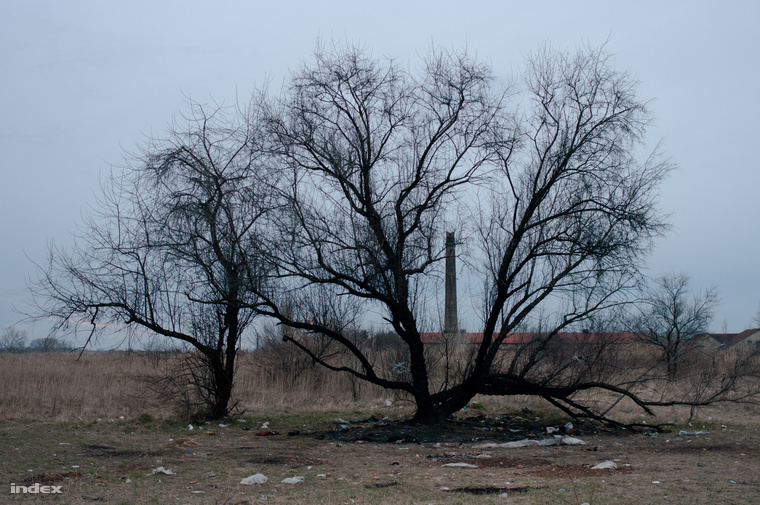
I felt increasingly uncomfortable because these guys told me about their hardships as if it was the most natural thing in the world to be beaten by Bulgarian police after wandering without any food or water in the wilderness for days on end.
“Serbians are good. The police are nice people too. When they saw we had no water they gave us some. That's not the way in Bulgaria. They kept me in prison for a month, they beat me, I got hardly anything to eat.” – remembered a Pakistani boy. His Iraqi friend nodded: “In Bulgaria the police officers sought the opportunity to have a go at us. We were standing by the wall and I only bent down for water, when they were already coming at me with clenched fists.”
“Everybody was fleeing from the country. Traffickers transported the people to Serbia” – told a boy wearing a pair of jeans that once must have been white. Then he timidly asked if I thought he would find a job as a journalist in Germany. That is because he used to be a journalist at a cable television company in Kabul, and he wanted to continue that. “Do you speak German?” – I asked, and he shook his head sadly. “I speak Pashto and Urdu, and a little English.”
The adventure of the middle class
And how much does the nearly 6000-kilometer-long journey from Kabul to Subotica cost? “So far we've spent 4500 Us Dollars each” – calculated the Afghan brothers. Some of the money they had saved themselves, and their parents had given them more. Besides, they had also taken out a bank loan to cover their expenses.
It has been a long time since I was last surprised by cultural differences, but the fact that even the banking system operates in a peculiar way in Afghanistan put me off. Later it turned out, of course, that the banks there work in the most rational way too. In Afghanistan emigration is the safest investment, like an enterprise, as they explained to me. The ones who get to the west send money home regularly, and that provides the money from which the loan can be paid back easily.
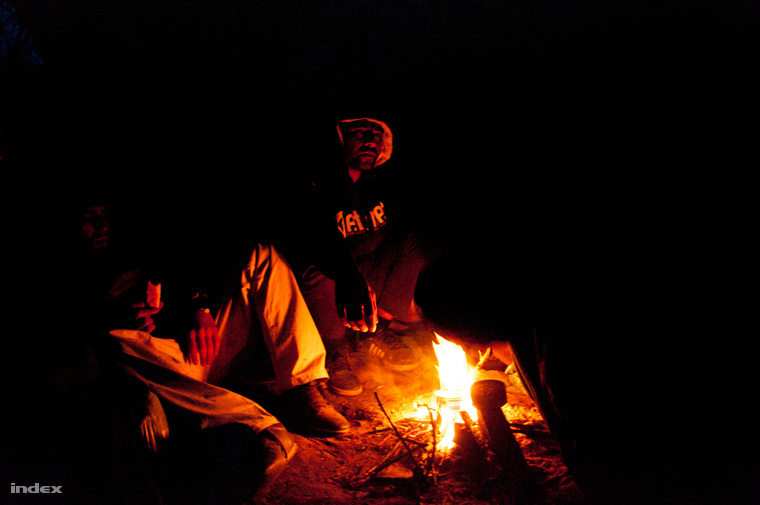
Whereas, if someone starts a local business there, his shop can be blown up by the Taliban, or it can be wrecked by state institutions, which work with astonishing corruption. And anyhow, the Afghan people barely have any money, and the profit comes in very slowly even under fortunate circumstances. A bizarre situation was taking shape before me: those who were sitting around me on the muddy ground, wearing clothes that recalled homeless fashion couture, did not belong to the poorest social level.
Suddenly, around eight o'clock in the evening the nylon tent started to bustle. 'We are setting off” – said the Afghan boy with a fluttering look in his eyes, pointing towards the railroad. “Isn't the Hungarian border in the opposite direction?” – I asked vaguely, and a man wearing a hoodie nodded. “Whatever, then there” – the boy shrugged his shoulders.
I also got confused myself, since the group sat back on the ground again, and the boy started to fidget with his brother's smartphone. Leaning over their shoulders I saw that they were fingering Google Maps. They were pulling the map between Subotica and Kelebia, and I began to wonder whether crossing the border was becoming a virtual enterprise, when they suddenly got to their feet again and set off aswirl into the looming reed.
“Are you coming?” – asked by-the-way the Afghan journalist who wanted to build up a Pashto language media career in Germany. After all I had told them I wanted to see with my own eyes what they lived through, thought I, and lined up with them. Luckily, I did not have a chance to consider what was coming next because we began galloping in the dark.
Read the second part
In the 2nd part the border is crossed illegally by a dozen of migrants and our journalist.

Support the independent media!
The English section of Index is financed from donations.


